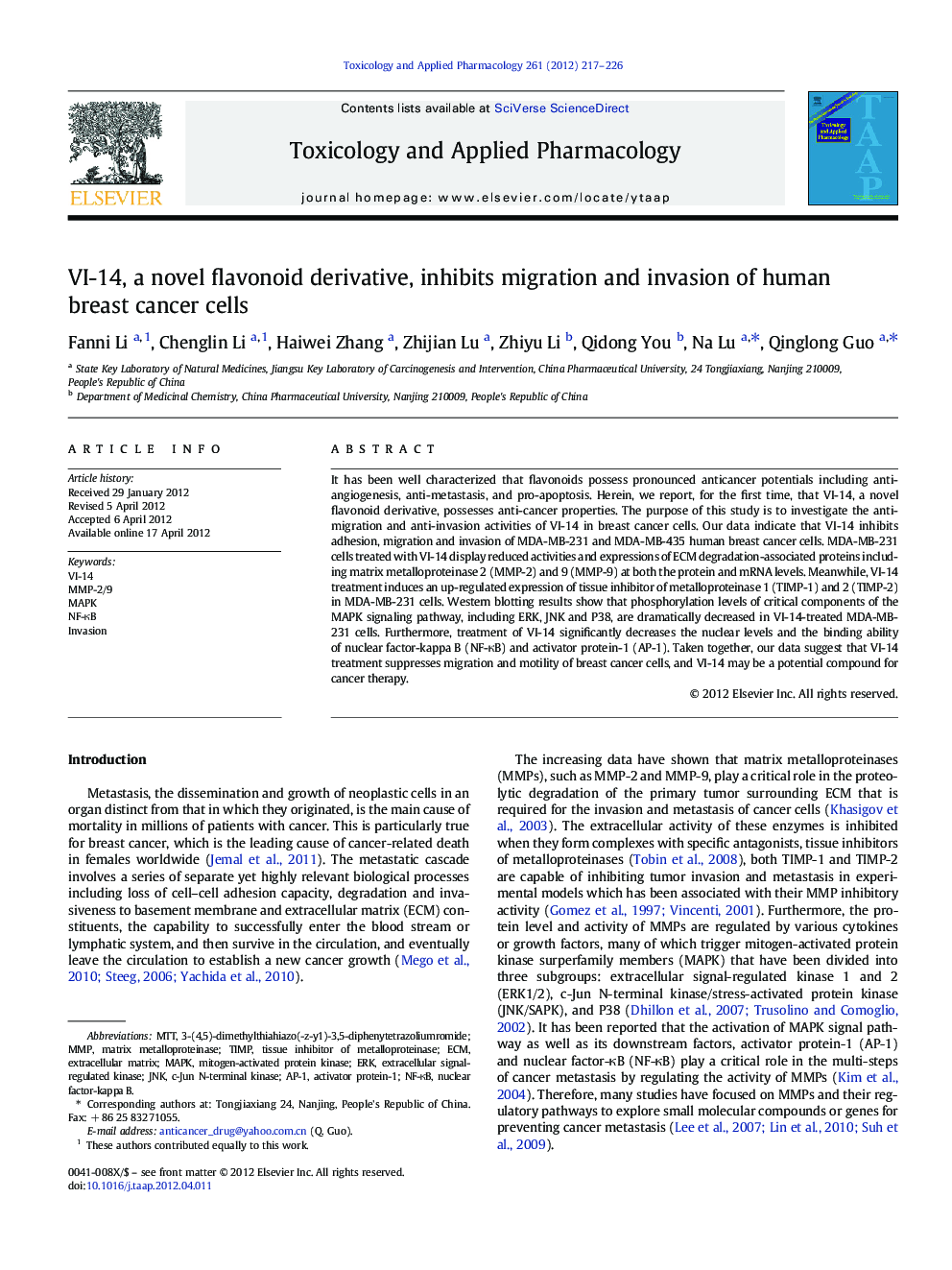| کد مقاله | کد نشریه | سال انتشار | مقاله انگلیسی | نسخه تمام متن |
|---|---|---|---|---|
| 2569025 | 1128504 | 2012 | 10 صفحه PDF | دانلود رایگان |

It has been well characterized that flavonoids possess pronounced anticancer potentials including anti-angiogenesis, anti-metastasis, and pro-apoptosis. Herein, we report, for the first time, that VI-14, a novel flavonoid derivative, possesses anti-cancer properties. The purpose of this study is to investigate the anti-migration and anti-invasion activities of VI-14 in breast cancer cells. Our data indicate that VI-14 inhibits adhesion, migration and invasion of MDA-MB-231 and MDA-MB-435 human breast cancer cells. MDA-MB-231 cells treated with VI-14 display reduced activities and expressions of ECM degradation-associated proteins including matrix metalloproteinase 2 (MMP-2) and 9 (MMP-9) at both the protein and mRNA levels. Meanwhile, VI-14 treatment induces an up-regulated expression of tissue inhibitor of metalloproteinase 1 (TIMP-1) and 2 (TIMP-2) in MDA-MB-231 cells. Western blotting results show that phosphorylation levels of critical components of the MAPK signaling pathway, including ERK, JNK and P38, are dramatically decreased in VI-14-treated MDA-MB-231 cells. Furthermore, treatment of VI-14 significantly decreases the nuclear levels and the binding ability of nuclear factor-kappa B (NF-κB) and activator protein-1 (AP-1). Taken together, our data suggest that VI-14 treatment suppresses migration and motility of breast cancer cells, and VI-14 may be a potential compound for cancer therapy.
Figure optionsDownload high-quality image (45 K)Download as PowerPoint slideHighlights
► We report for the first time that VI-14 possesses anti-cancer properties.
► VI-14 weakens the adhesion, migration and invasion of human breast cancer cells.
► VI-14 decreases the activities and expressions of MMP-2/9.
► VI-14 suppresses the phosphorylation levels of the MAPK signaling pathway.
► VI-14 decreases the nuclear levels and the binding ability of NF-κB and AP-1.
Journal: Toxicology and Applied Pharmacology - Volume 261, Issue 2, 1 June 2012, Pages 217–226